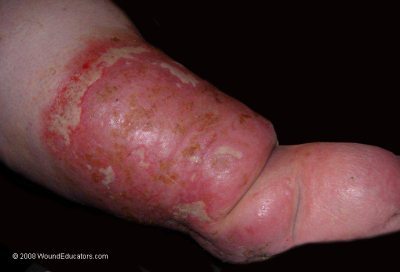Lymphedema – Overview and Etiology
What is lymphedema?
Lymphedema describes an abnormal accumulation of lymphatic fluid in the interstitium causing swelling and a feeling of heaviness or weakness in the affected area. Lymphedema most commonly affects the arms and legs, but can sometimes also occur in other parts of the body.1
Interest in lymphedema has traditionally been limited, partly because its prevalence is difficult to determine and also because it is not widely perceived as a painful condition.2 However, in fact, 50% of patients with lymphedema have reported pain or discomfort, and sufferers also show a significantly decreased quality of life. [3]
Consequences of Lymphedema
Lymphedema can also have potentially serious consequences, including an increased risk of infection, delayed wound healing, and local tissue hypoxia. Lymphedema is also known to progress rapidly through stages of increasing severity if not treated.
Over the next few weeks, we will look more closely at lymphedema, raising some of the important issues relating to this somewhat neglected condition.
What Causes Lymphedema?
Lymphedema can be divided into primary lymphedema and secondary lymphedema. Primary lymphedema occurs without any obvious cause and is the result of congenital malformation or impairment of the lymphatics. Approximately 10% of all cases of lymphedema fall into this category, and the condition may be present at birth or develop at either the onset of puberty or later in adulthood.4
Secondary Lymphedema
Secondary lymphedema, also known as acquired lymphedema, develops as a result of some form of disruption or damage to the lymphatic system. Common causes include surgery, radiation, infection, and trauma.2 Surgery which requires removal of the lymph nodes, including surgery for melanoma or breast, gynecological, head, and neck, prostate or testicular, bladder or colon cancer, puts patients at particular risk of developing secondary lymphedema. Secondary lymphedema can also develop following radiation therapy, for example in the treatment of various cancers and some AIDS-related diseases.
Most Common Cause of Lymphedema
Worldwide, the most common cause of lymphedema is filariasis, the direct infestation of lymph nodes by the parasite Wuchereria bancrofti. [5] Other causes include vein stripping, peripheral vascular surgery, lipectomy, burns, burn scar excision, and insect bites.
The underlying pathophysiological processes responsible for the development of lymphedema are complex and not fully understood. For those looking for further information, greater insights into the pathophysiology of lymphedema, as well as other aspects of this condition, can be gained through studying for a certification in wound management.
Learn More With Our Wound Care Education Options
Interested in learning more about wound care and certification? Browse through our wound care certification courses for information on our comprehensive range of education options to suit healthcare professionals across the full spectrum of qualifications and experience.
References
- Myers BA. Wound management principles and practice. 2nd ed. Upper Saddle River, NJ: Pearson; 2008.
- Baranoski S, Ayello EA. Wound Care Essentials Practice and Principles. 2nd ed. Ambler, PA; Lippincott Williams & Wilkins; 2008.
- Moffat C, Franks P, Doherty D, et al. Lymphoedema: An Underestimated Health Problem. Q J Med 2003;96:731-738.
- Zuther J. Lymphedema Management: The Comprehensive Guide for Practitioners. New York: Thieme; 2005.


Wound pain can be so severe that a person will want to die. This is the very sad case of my father in law. He died, Sept 21. He could no longer cope with the intense pain and treatmens for his diabetic wound on his foot over the past year, that he commited suicide.He was prescribed Fentyl patch and was having hyperbaric chamber treatments 4 days a week that was very expensive. His dressing was changed at he wound clinic weekly.